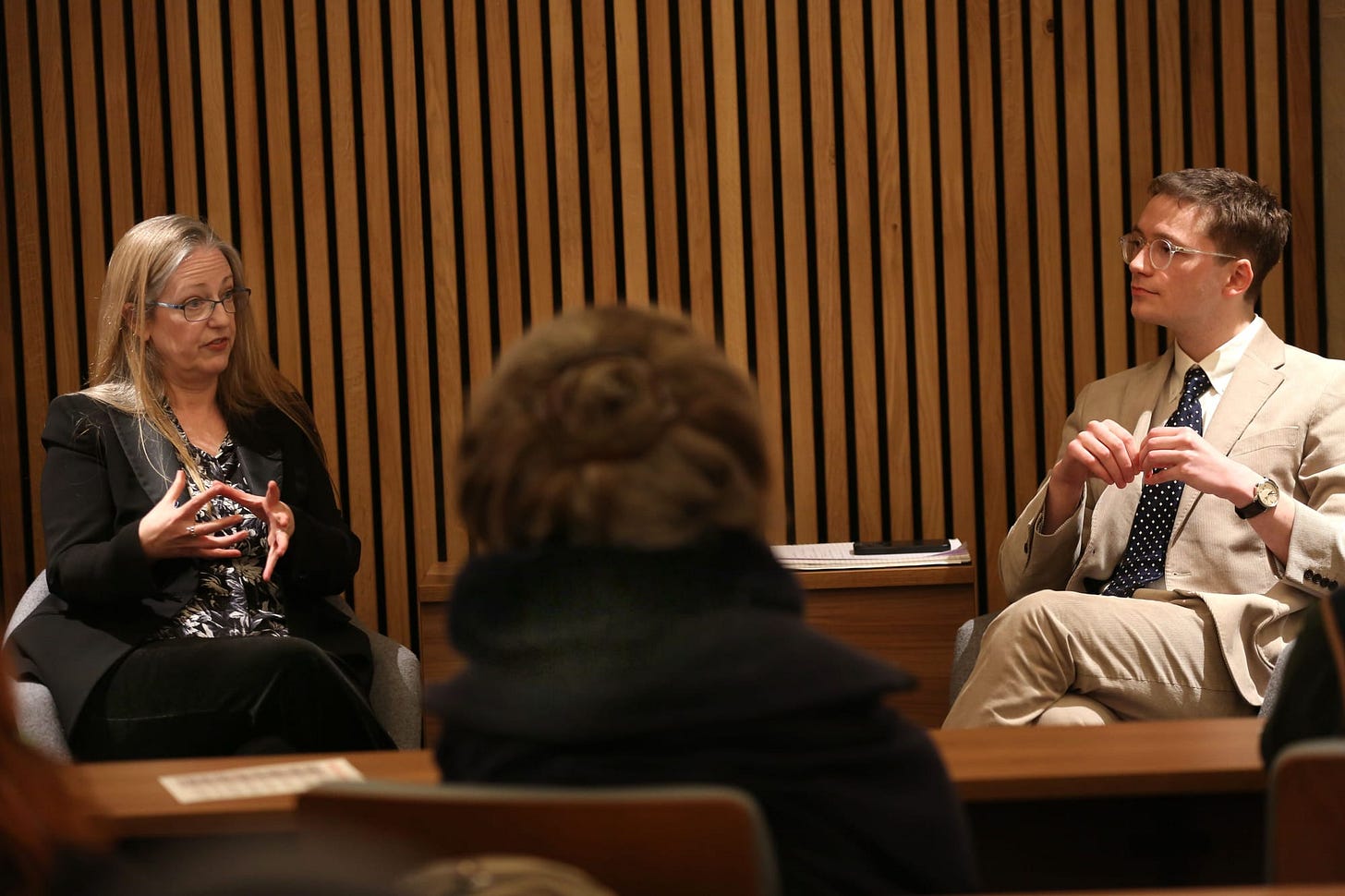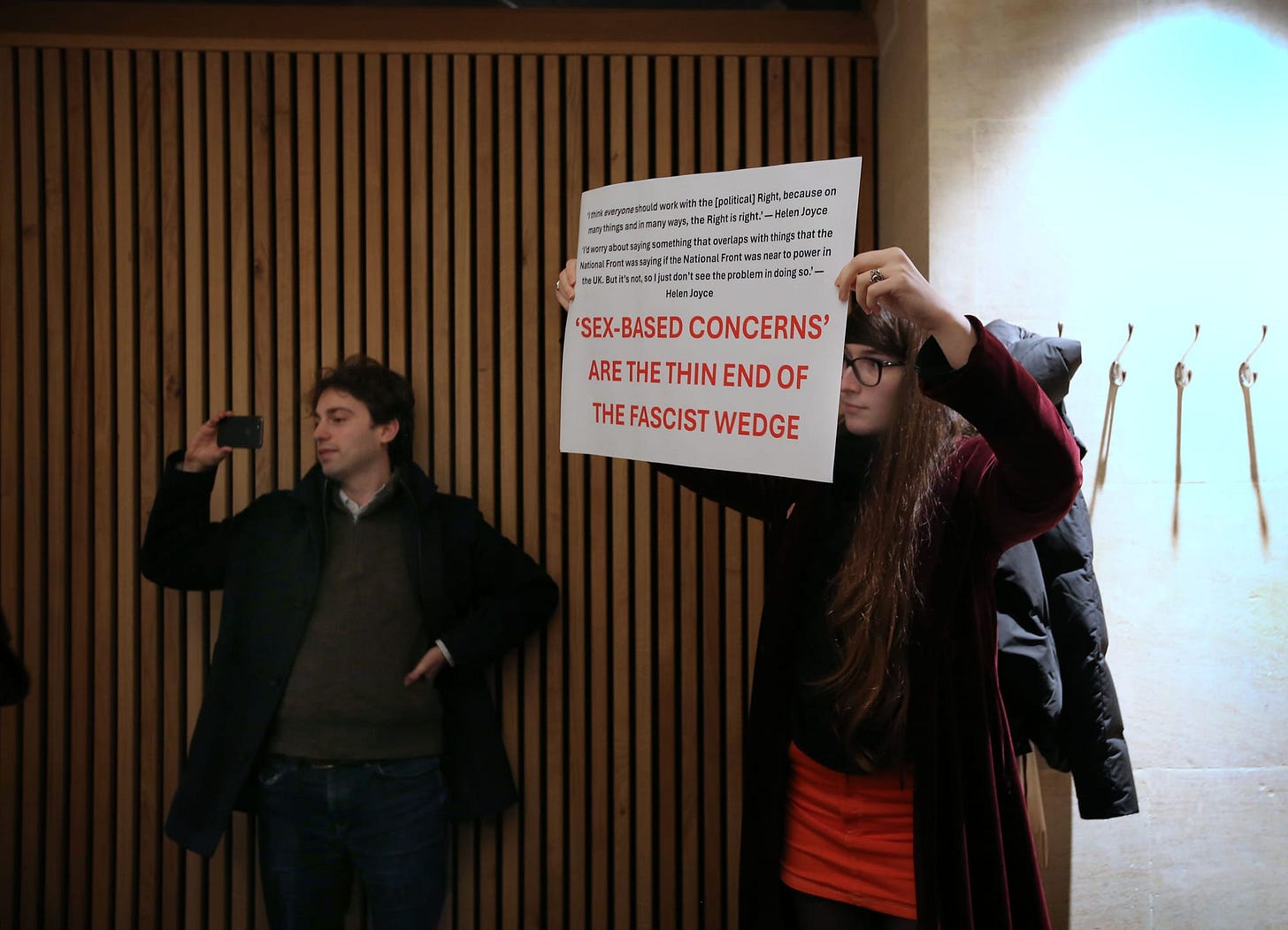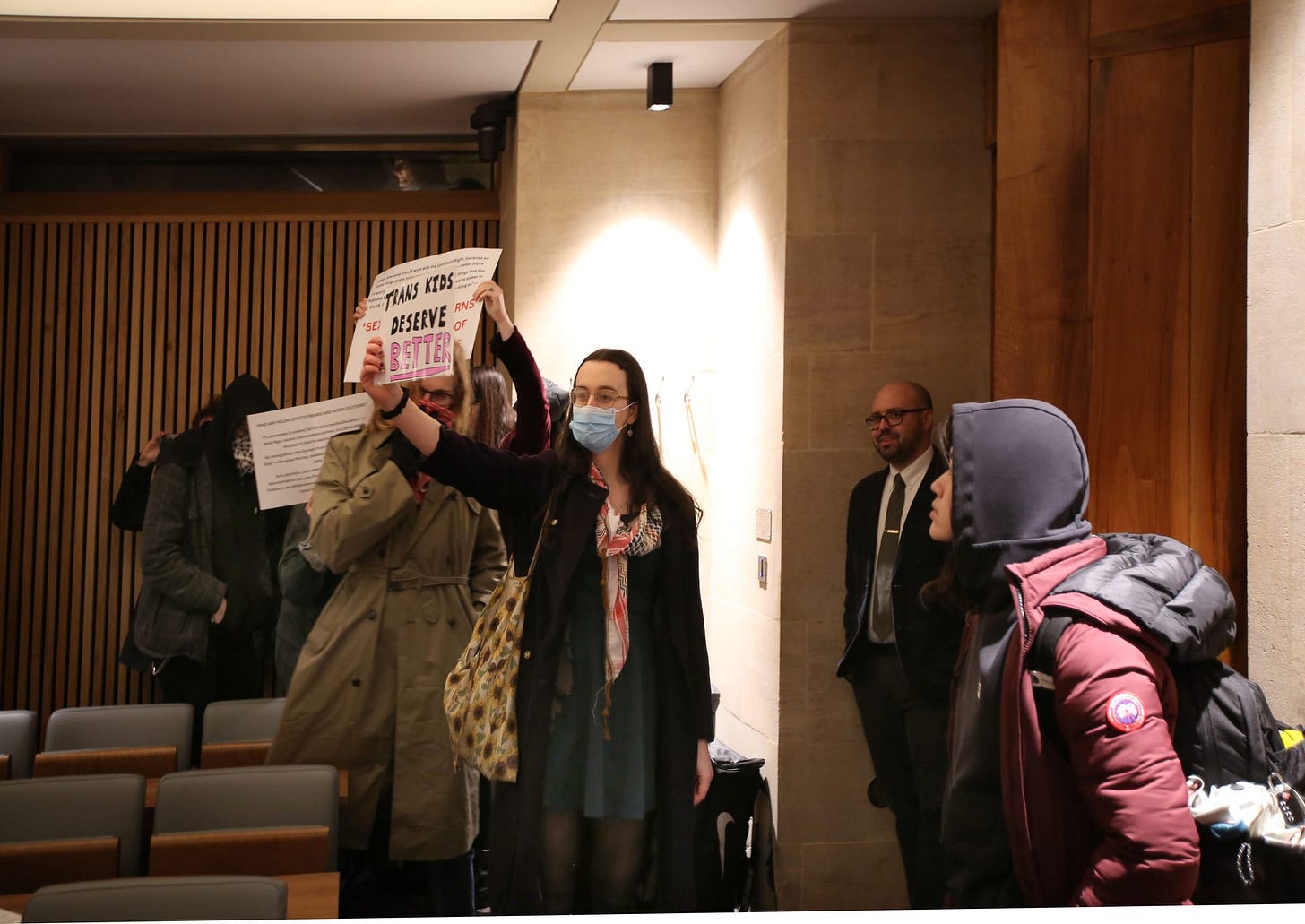A trip to Oxford to talk to philosophers
Last week I accepted an invitation to talk to the Balliol Philosophy Society. Here is how it went down
In the previous issue I flagged my upcoming talk to Balliol Philosophy Society, which has now been and gone. During the busy week of meetings and events since then I found time to write about it for the Critic, and to talk to journalists for the Times and Telegraph. The Times had a terrible factual inaccuracy in it, claiming that I was left “briefly speechless” and “lost for words” when a group of protestors staged a walkout – as many, many people got in touch with me to say, I am never at a loss for words!
If you are not a subscriber to my newsletter, Joyce Activated, you might like to sign up for free updates. I hope that in the future you might consider subscribing.
The genesis of the event was a discussion with other people who, like me, are very concerned about campus censorship, and who were incensed by the decision of the education secretary, Bridget Phillipson, to gut the Higher Education (Freedom of Speech) Act that had been due to come into force just a few days after Labour took power last year. Phillipson suspended it with a view to repeal, claiming that it imposed unnecessary and onerous duties on universities, and that it would give legal protection to antisemitism, both claims I (and lawyers who understand human-rights law) regard as absurd. Its current status is uncertain.
In that discussion I suggested holding an event on one of the hot campus topics, and seeing what happened. John Maier, a philosophy PhD student at Oxford and president of the Balliol Philosophy Society, suggested I come to talk to the society as a kind of demonstration project. Either Phillipson is right and campuses are open for controversial-yet-lawful discussion – in which case, demonstrating that might encourage others to be braver – or she’s wrong and we would have evidence of that. Either way, we win.
In the end, it was a bit of both. The college got a fair bit of grief for allowing the event to go ahead and there was a protest, but it didn’t seriously disrupt the event. What it means for the future of HEFSA, or indeed the likelihood of courage breaking out all over, I’m not sure. Thinking about it a week later, however, what strikes me is how ridiculous the protestors were, and how clearly that came through in the coverage. That gives me hope that there will be fewer protests in future.
Take the protestors’ signs and placards. If I had to portray myself as a terrible person, I’d have done a much better job. The quotes they chose to illustrate my awfulness related to my advocating cross-party co-operation, my not being bothered that bad people agree with me that there are two sexes and my regarding paediatric gender medicine, which can result in children being sterilised, as an abomination. I don’t think any of this makes me sound bad.
And then there was the young woman who stood up and said that when she went out in her home town in Ireland in her “flowery pants” (an Americanism, by the way – quite a tell, like referring to “bathrooms” instead of toilets), she suffered vicious, unremitting homophobic abuse because she was “read as a gay man”. As I wrote in the Critic, she insisted that legal gender recognition is essential for the abuse she says she suffers to be treated as homophobic hate crime, with the implication that by opposing legal gender recognition I oppose protections for her.
But both parts of this are false. I don’t advocate anyone being abused, for any reason. And it’s settled law that if someone is wrongly perceived to have a protected characteristic and suffers discrimination, harassment or abuse on that basis, it’s precisely the same crime as if they actually had that protected characteristic. If a gang sets upon a man they think is gay, it’s no defence in law to say they found out afterwards he actually wasn’t gay; the crime and the punishment are precisely the same as if he were.
No doubt all this young woman’s friends use he/him pronouns for her and affirm her belief that she is a man and is “read as” one. But she was obviously female, although relatively androgynous – slim and tall, and on closer observation I think she had probably had a mastectomy and her slightly froggy voice suggested she might have taken testosterone.
One possibility is that she is enjoying appropriating victimhood. To me that seems depressing, indeed offensive. But as I’ve written before, young people increasingly think that being a victim conveys status.
Another is that she truly thinks she looks like a man because in some ways she genuinely is more like a teenage boy than a middle-aged woman. Victoria Smith writes very well in Hags about the contempt and disgust many people – including younger women – feel for middle-aged women. I could quite imagine this girl looking at a woman 35 years older than her with wrinkles, pregnancy weight she’s never got rid of, and clothes and hair that suggest she’s no longer that interested in fashion, and thinking “that just isn’t me.”
A third is that she fetishises gay masculinity. When I first wrote about slash fiction this made no sense to me, but by now I’ve heard from enough straight women that they, or other straight women they know, fantasise about being in a gay male relationship. These women are extremely unrealistic about gay men, and the trans-identified among them are downright deluded in thinking that gay men will accept them as potential sexual partners. But such is the taboo against dissenting from people’s identity claims that they don’t find this out until they face loneliness and rejection – which of course further feeds their claims of victimhood.
Whatever drives them, when subjected to the unforgiving light of people outside their own hyper-liberal bubble, such delusion looks somewhere between absurd and tragic. I don’t think turning up to events where people refuse to pander is going to be much fun for very long.
I’m terribly sorry for the young people who have wasted a crucial developmental period caught up in this trend. Obviously it’s worst for the ones who have made permanent physical changes that will mark them out for the rest of their lives, and the ones who have cut themselves off from family and friends. But it’s bad for all of them, even the ones who come out the other end with their bodies and relationships intact.
I have many conversations with parents whose children identified as trans for significant parts of their teens or early adulthood without medicating or cutting off their families, some of whom have since desisted. While their peers were travelling, falling in and out of love, learning about the world, trying on and discarding new opinions and interests – growing up, in other words – they were turned inwards, obsessing about their identities. I can’t think of a more tedious and unproductive way to spend time they will never get back.
If you are signed up for free updates or were forwarded this, and would like to subscribe to my newsletter, Joyce Activated, click below.




